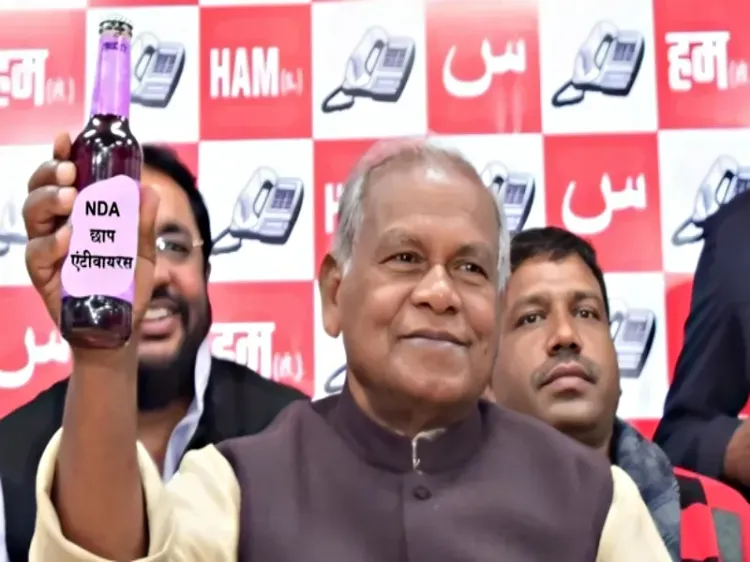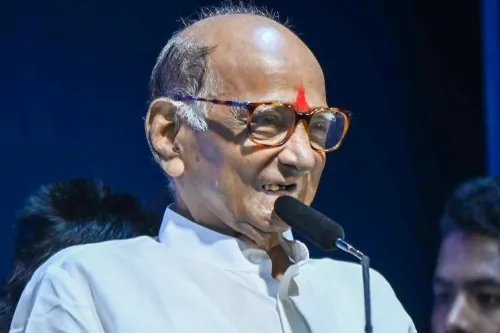Did Germs and Viruses Unite? Manjhi's Bold Critique of RCP Singh's Party Merger with Jan Suraaj

Synopsis
Key Takeaways
- Political alliances can significantly impact electoral outcomes.
- Jitan Ram Manjhi's comments highlight the contentious nature of Bihar's political landscape.
- Understanding the motives behind political mergers is crucial for voters.
- Historical ties among politicians often influence their current decisions.
- Public perception of political figures can shift rapidly based on their actions.
Patna, May 18 (NationPress) The recent merger of former Union Minister RCP Singh’s party with Prashant Kishor's Jan Suraaj has sparked intense reactions from various political factions in Bihar, notably the JD-U and RJD. However, the most pointed remarks came from Jitan Ram Manjhi, the founder of Hindustani Awam Morcha (HAM).
Manjhi delivered a sharp critique of the alliance, stating, “germs and the virus have come together to poison Bihar.” He asserted that leaders like Prashant Kishor and RCP Singh believe they can harm the people of Bihar, unaware that an ‘antivirus’ exists in the form of the National Democratic Alliance (NDA).
“The combination of PK and RCP must recognize that the NDA's antivirus is potent enough to counter any virus,” he added.
Labeling them as political failures, Manjhi remarked: “What could be more absurd than RCP Singh, who formed a new party just 6 months and 18 days ago, merging it with Prashant Kishor's Jan Suraaj Party, which itself was established only 7 months and 16 days prior?”
He pointed out that both had previously collaborated with Chief Minister Nitish Kumar but chose to leave, suggesting that their personal ambitions overshadow the state's welfare.
Meanwhile, Tejashwi Yadav, the Leader of Opposition in the Bihar Assembly, noted that both were once part of JD-U, with one serving as national Vice-President and the other as President. “Everyone knows the motive behind this move,” he stated.
JD-U spokesperson Neeraj Kumar described the two as political toxins and claimed they betrayed Chief Minister Nitish Kumar, asserting that they are now politically irrelevant and have turned against those who supported them.
He challenged RCP Singh to contest elections in any assembly constituency of Nalanda, saying, “If you receive no fewer votes than in the Mukhiya election, I will retire from politics.”









